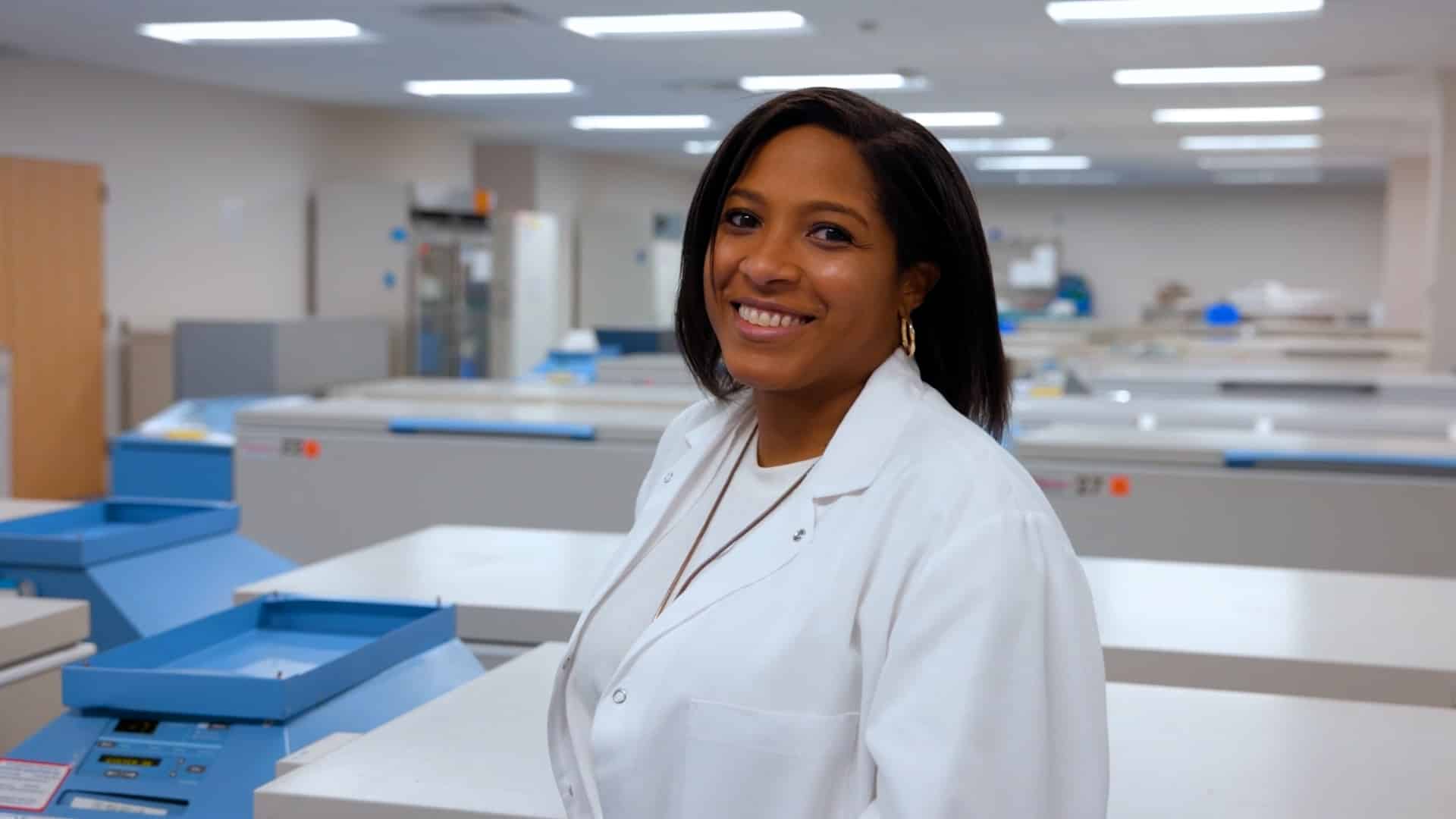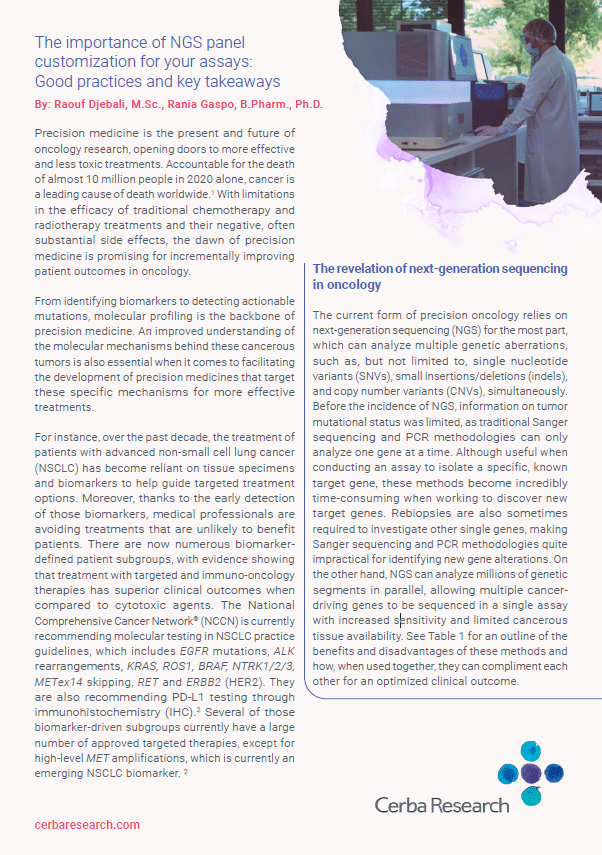As cancer remains a major global health concern, precision medicine brings hope for patients for improved treatments and outcomes. Explore the pivotal role of Next-Generation Sequencing (NGS) panel customization in driving advancements in oncology research. From biomarker identification to actionable mutation detection, molecular profiling forms the bedrock of precision medicine. Learn how NGS panel customization is revolutionizing this landscape, enabling simultaneous analysis of diverse genetic aberrations for a comprehensive cancer understanding.
Traditional methods like Sanger sequencing and PCR are limited to single-gene analysis, making them impractical for new target discovery. NGS’s ability to analyse millions of segments in parallel accelerates research, while customized panels provide deeper, cost-effective insights into genomic abnormalities.
Discover insights on:
- NGS Advantages: Delve into the superiority of NGS over traditional methods, facilitating efficient and sensitive analysis.
- Clinical Implementation: See how NGS is enhancing patient care through improved molecular profiling in clinical trials and practice.
- Personalized Therapies: Understand how tailored panels enable personalized and precise targeted therapies by identifying actionable mutations.
- Latest Techniques: Explore the application of NGS to formalin-fixed paraffin-embedded (FFPE) samples and the innovative use of circulating tumor DNA (ctDNA).
Elevate your understanding of precision oncology’s potential. Download our white paper to harness the benefits of NGS panel customization. Empower your oncology research and clinical practice with insights that will help transform your research and advance health for patients.




